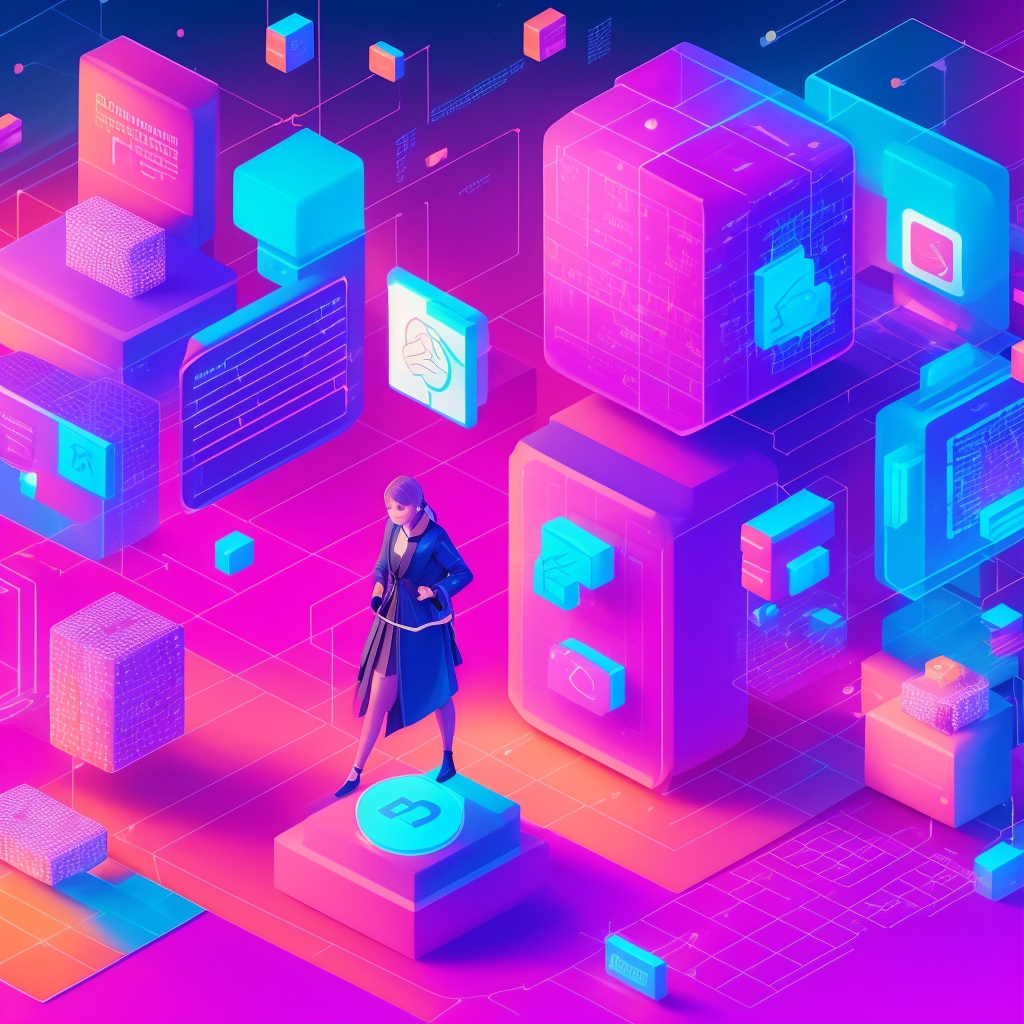In 2025, blockchain has firmly established itself as an indispensable technology in the realm of financial transactions and data security. This technology, once primarily associated with cryptocurrencies, has found diverse and varied applications, fundamentally transforming how data is managed and secured worldwide. Thanks to its ability to provide secure and transparent transactions, blockchain has become a cornerstone of secure and financial technologies. This article explores how blockchain is revolutionizing these sectors in 2025, highlighting its benefits, concrete applications, and best practices for its implementation.
Advantages of Blockchain for Financial Transactions
Blockchain offers numerous advantages for financial transactions, particularly in terms of security, speed, and transparency.
Enhanced Security
One of blockchain’s primary benefits is its ability to secure transactions through its decentralized architecture. Each transaction is recorded in a block, which is then validated and added to a chain of blocks. This consensus-based validation process makes data falsification virtually impossible. For instance, in cross-border payments, blockchain significantly reduces the risk of fraud and ensures integrity from sender to recipient.
Speed and Efficiency
Traditionally, international financial transactions can take several days to process due to multiple intermediaries and legacy systems. Blockchain, thanks to its decentralized nature, allows transactions to be finalized in a matter of minutes, or even seconds. This is particularly beneficial for businesses conducting frequent and large-scale transactions, enabling faster trade and cash flow.
Transparency and Traceability
Every transaction on a blockchain is visible to all participants in the network (depending on the type of blockchain, e.g., public vs. private), ensuring a high level of transparency. This feature is especially useful for financial audits, as it allows for clear and immutable tracking of the complete transaction history, reducing disputes and fostering trust.
Blockchain and Data Security
When it comes to data security, blockchain offers innovative solutions to protect sensitive information.
Data Integrity
Blockchain guarantees data integrity by ensuring that all modifications are recorded and visible to all authorized participants. This prevents any unauthorized alteration of stored information, which is crucial for sectors requiring high security, such as healthcare records, legal documents, or financial services. The immutable ledger acts as an indisputable record.
Protection Against Cyberattacks
Thanks to its decentralized structure, blockchain is inherently less vulnerable to cyberattacks compared to centralized systems. Unlike traditional databases where a single point of failure can compromise the entire system, blockchain distributes information across multiple nodes. This makes it far more difficult for malicious actors to corrupt or steal data, as they would need to compromise a majority of the network’s nodes simultaneously.
Concrete Examples and Use Cases
Cryptocurrencies and Payments
Cryptocurrencies, such as Bitcoin and Ethereum, are the most well-known examples of blockchain’s application in financial transactions. In 2025, numerous businesses readily accept these digital currencies as payment methods, leveraging their lower transaction costs and faster settlement times compared to traditional banking.
Supply Chains
Blockchain is also extensively used to enhance traceability in supply chains. For example, in the food industry, it allows consumers and regulators to track the origin of products from farm to table, ensuring quality, authenticity, and significantly reducing the risk of contamination or counterfeit goods. This also helps with ethical sourcing and sustainability claims.
Identity Management
Digital identity management is another major application of blockchain. Projects like uPort or Sovrin enable users to control their personal information and securely share their data with chosen third parties. This gives individuals unprecedented control over their digital footprint, reducing the risk of identity theft and simplifying verification processes.
Healthcare Records
In healthcare, blockchain is being used to create secure, immutable patient records that can be shared efficiently and securely between authorized providers, improving continuity of care and patient privacy.
Key Points and Best Practices
To maximize the benefits of blockchain, it’s essential to follow certain best practices.
- Choose the Right Platform: There are various blockchain platforms (e.g., Ethereum, Hyperledger Fabric, Solana), each with its own characteristics, consensus mechanisms, and use cases. It’s crucial to select the one that best aligns with your specific needs and business objectives.
- Prioritize Security: Ensure that security protocols are robust, including regular audits of smart contracts, multi-factor authentication for access, and secure key management practices.
- Continuous Training and Education: The technology evolves rapidly, and it’s essential that teams and stakeholders are trained on the latest innovations, best practices, and regulatory changes to fully leverage blockchain’s potential.
- Consider Scalability: As blockchain adoption grows, ensure the chosen solution can scale to handle increasing transaction volumes without compromising performance.
- Regulatory Compliance: Stay informed about evolving regulations in different jurisdictions, as legal frameworks for blockchain are still developing.
FAQ
What is blockchain?
A blockchain is a decentralized digital ledger that records transactions in a secure, immutable, and verifiable manner. Each transaction is validated by a network of participants before being added to a block, which is then cryptographically linked to the previous one, forming a “chain.”
How does blockchain improve data security?
Blockchain enhances data security by using a decentralized, cryptographic structure that makes data virtually tamper-proof. Information is distributed across multiple nodes, preventing unauthorized modification and offering robust protection against single-point-of-failure cyberattacks.
What are blockchain applications beyond cryptocurrencies?
Beyond cryptocurrencies, blockchain is used in supply chain management, digital identity management, healthcare, voting systems, intellectual property rights, real estate, and many other sectors to improve traceability, security, and efficiency.
Can blockchain be hacked?
While the blockchain itself is considered highly secure due to its cryptographic nature and decentralization, it’s not entirely immune to all threats. The most common vulnerabilities often lie in the applications or interfaces that interact with the blockchain, such as digital wallets, smart contract code, or user practices.
What are the challenges associated with blockchain adoption?
Key challenges include scalability (handling high transaction volumes efficiently), energy consumption (especially for proof-of-work blockchains), regulatory uncertainty, the need for interoperability between different blockchains, and the complexity of integrating it with existing legacy systems.
Conclusion
In 2025, blockchain continues to transform financial transactions and data security through its ability to offer secure, transparent, and efficient solutions. Whether in identity management, international payments, or supply chains, blockchain is asserting itself as a key technology. For businesses, adopting blockchain involves following best practices and staying informed about the latest innovations to maximize its benefits. The future of digital trust and efficiency is increasingly intertwined with the power of blockchain.







